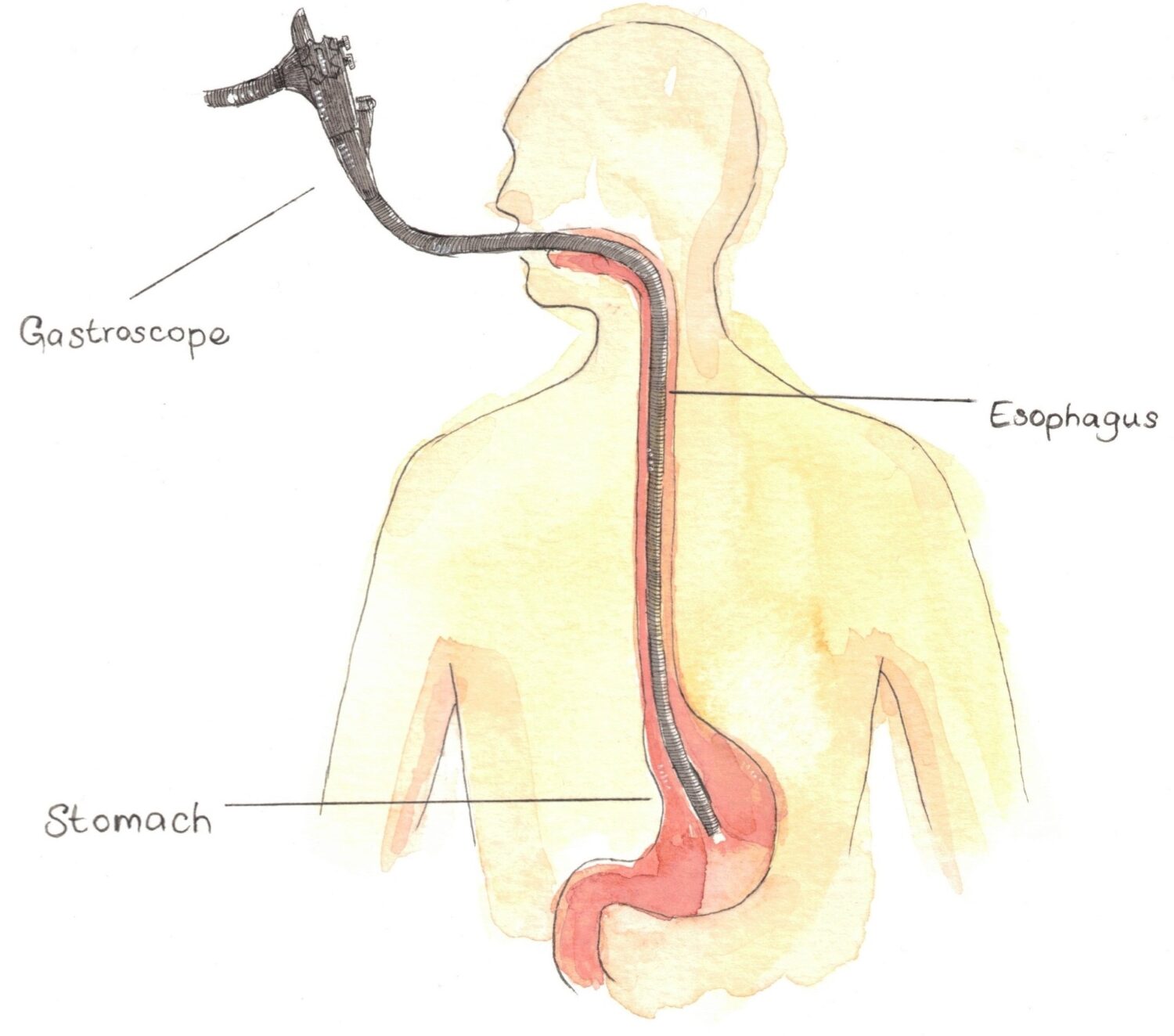Gastroscopy
Gastroscopy is an endoscopic procedure of the upper gastrointestinal tract that allows to examine the esophagus, stomach and duodenum using a flexible optical instrument (gastroscope).
This procedure can help to clarify the causes of your complaints (such as upper abdominal pain, nausea, vomiting, swallowing disorders) and detect pathological changes in the esophagus, stomach or duodenum (such as bleeding, ulcers, tumors). Gastroscopy is more accurate than X-ray examination and during the procedure it is possible to collect tissue samples (biopsies), which can be later examined under a microscope.

Preparation for the procedure
Before the procedure, ask the doctor for information about the medication you are taking at home.
It is necessary to remove dentures, lip and tongue jewelry before the procedure.
Your stomach must be empty, therefore you must not eat or drink 6-8 hours before the procedure (your latest meal should be preferably in the evening of the previous day).
Description of the procedure
Prior to the procedure you must sign a consent form.
During the procedure you will be lying on your left side. A mouthpiece will be placed between your teeth and lips to protect the gastroscope. The gastroscope will be orally inserted through the mouthpiece into the esophagus, stomach and duodenum and by dilating these organs with air, it is possible to find pathological changes.
The procedure lasts about 10-15 minutes and does not cause you any pain. During the procedure you may experience discomfort in the upper abdomen and cough or gag reflexes. You may also experience discomfort in your throat during the procedure, but your airways are clear and there is no obstruction to your breathing.
The gag reflex can be avoided or significantly reduced, if you:
- breathe through your mouth,
- relax your upper body,
- do not swallow saliva.
After the procedure
After a gastroscopy you may experience a slight discomfort in your throat and have a feeling of fullness due to the air that was put into your stomach. Usually, these complaints pass within a few hours. Unless your doctor has not instructed otherwise, you are allowed to eat and drink right after the procedure.
Results of the gastroscopy will be written immediately after the procedure by the endoscopist and will be sent electronically to the referring doctor.
Possible complications
Complications during a gastroscopy are rare, but they may be the following:
- bleeding after biopsies is usually minimal and does not require blood transfusions or surgical treatment;
- perforation (i.e. a formation of a hole) of the esophagus or the stomach wall is very rare and requires surgical treatment.
In case you develop a fever, experience severe abdominal pain or start vomiting blood after the procedure, you should immediately contact your nurse or doctor.
Endoscopy Center
Tartu University Hospital, Internal Medicine Clinic
L. Puusepa 8, Building J, 3rd Floor
To cancel your appointment, call 731 9099 (Mon-Fri 07:30-18:00) or submit your request on the hospital’s website under the “For Patients” section.
Compiled by: Marika Kukk, head nurse of the gastroenterology department
Illustrated by: dr Ana Botchorishvili
Translated by: Krista Sell, RN
2022